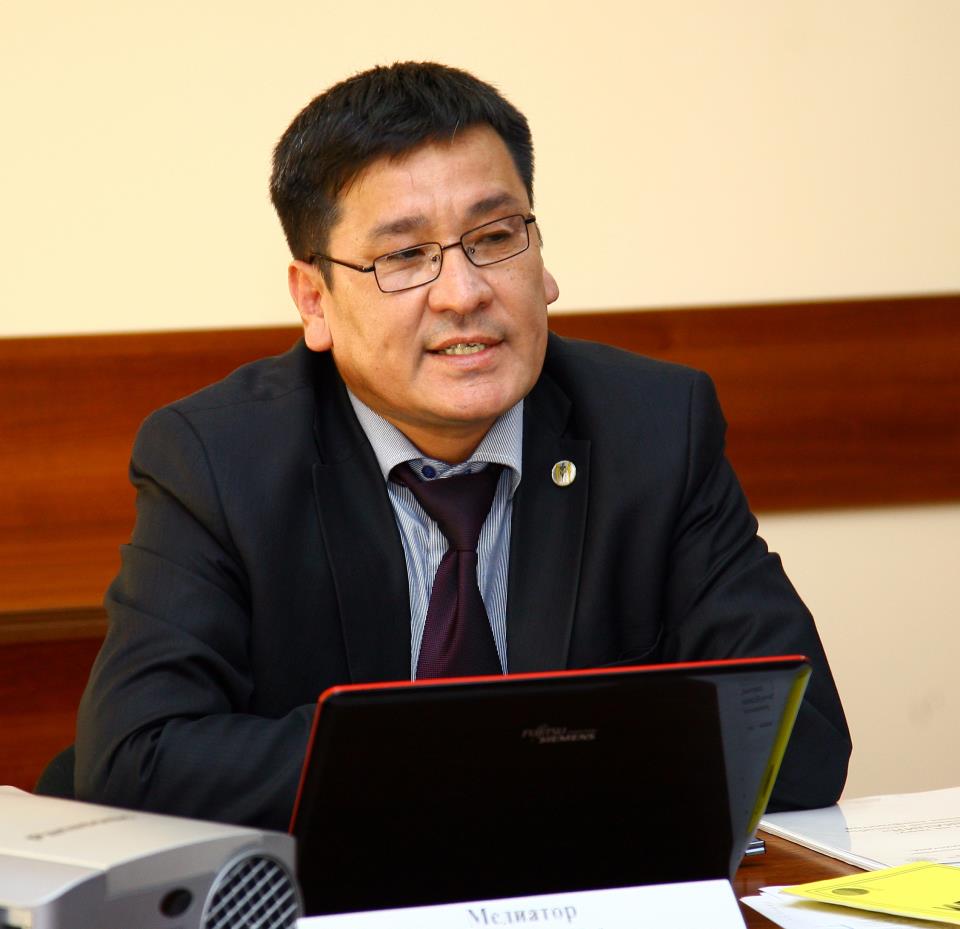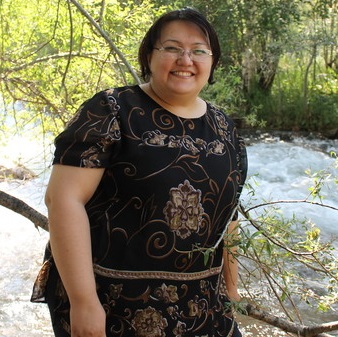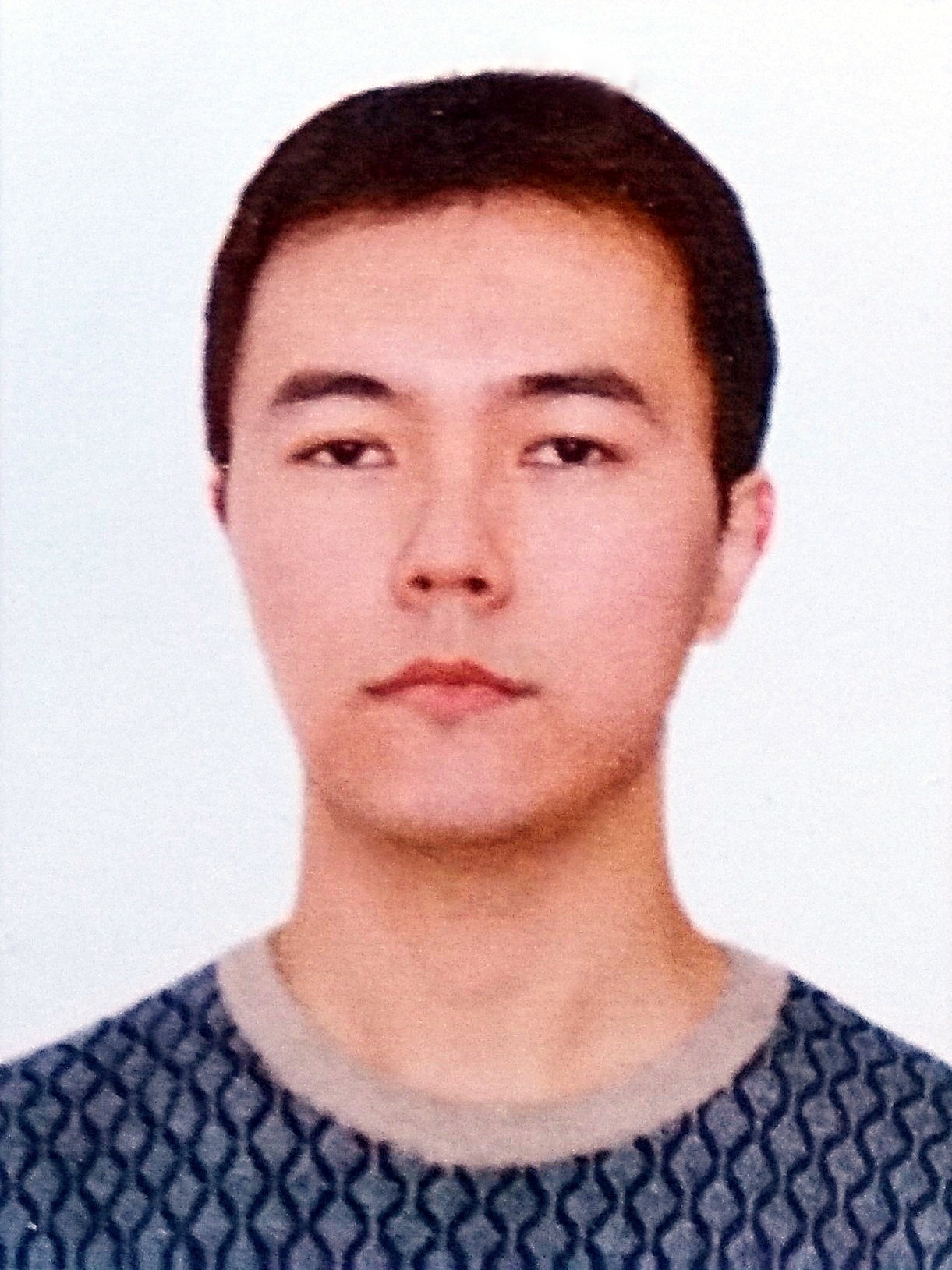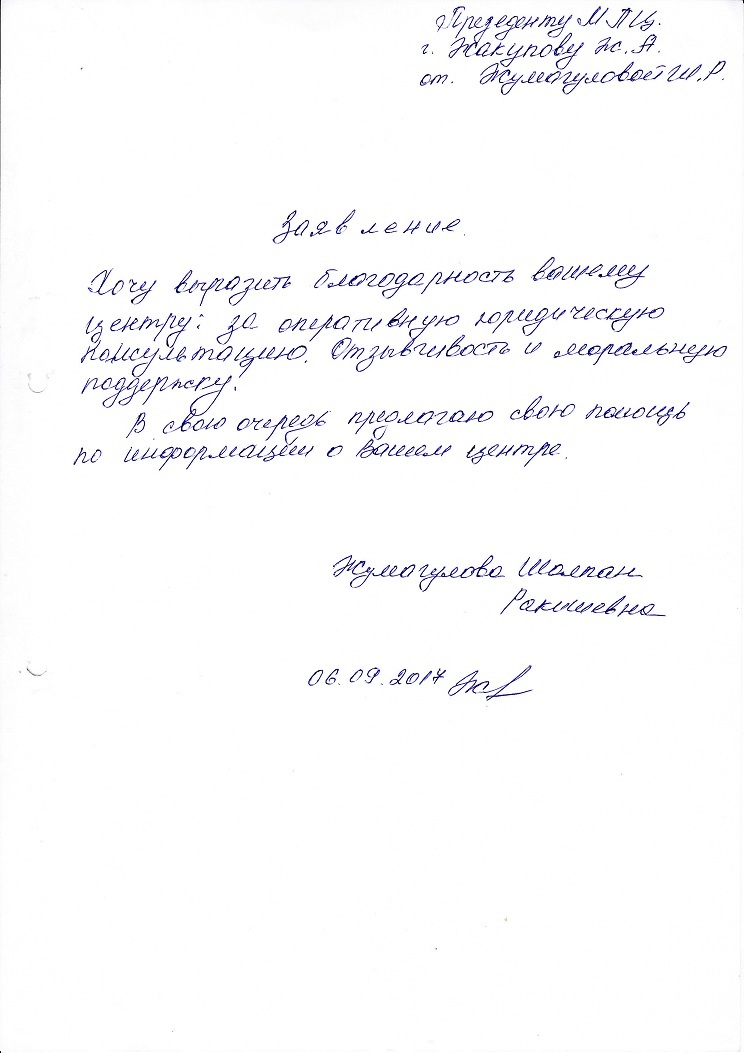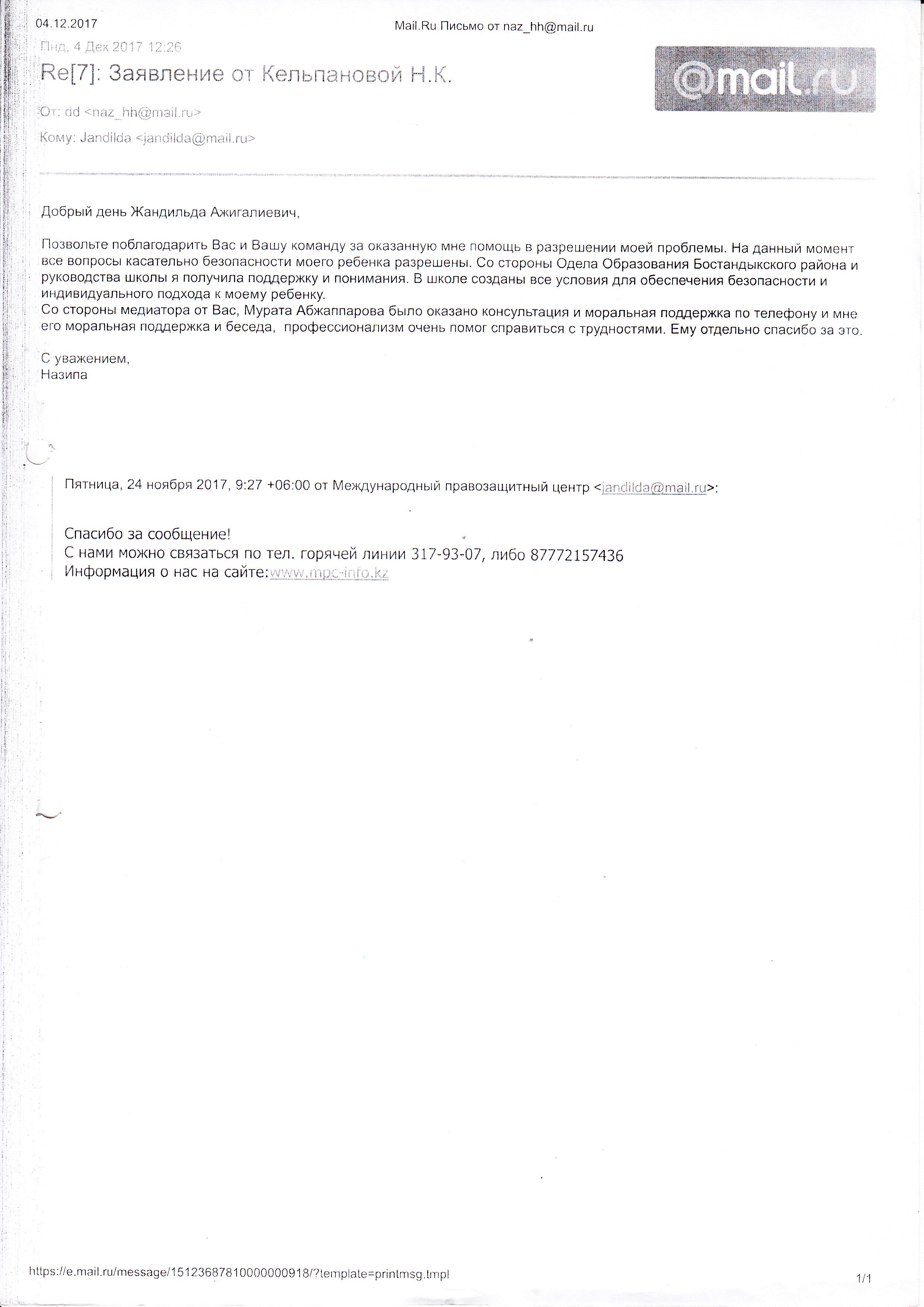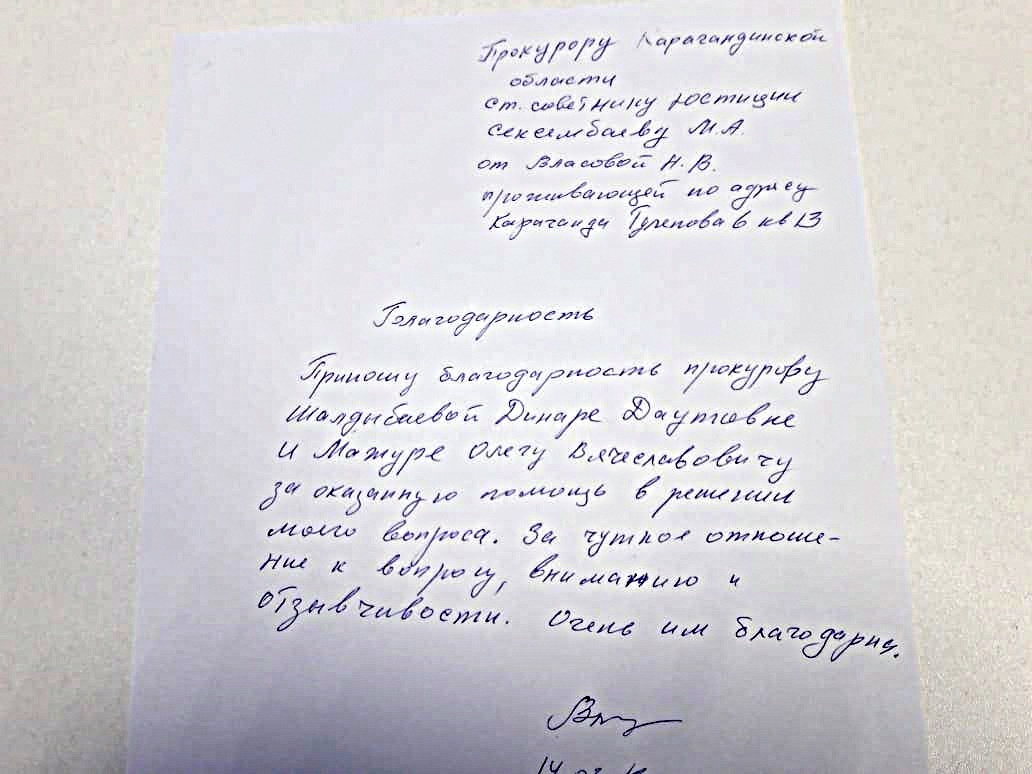Super User
MPC Mediator Code of Ethics
NGO " INTERNATIONAL HUMAN RIGHTS CENTER "
Developed by MPC mediators,
Approved by the President of the IPC Zhakupov Zh.A.
Adopted at the General Meeting of Mediators of the IPC
March 30, 2012
K O D E K S
Professional Ethics Plectrum
This Code defines the moral and ethical standards of the Center's activities mediators mediation NGO " International Human Rights Center ".
Article 1
The purpose of this Code is to facilitate the implementation and development of the mediation institution in the Republic of Kazakhstan, to inform the public about mediation as an alternative dispute resolution procedure.
Section 2
The objectives of this Code are: to determine the basic ethical and moral norms and principles of mediators, create conditions for dialogue between the disputing parties, clarify the problems and controversial issues, state and agree on different opinions, identify interests, propose, discuss and evaluate ways out of this situation.
Section 3
Mediators have a document (certificate) confirming the passage of training in the training program for mediators, who are in the register of professional mediators Mediation Center NGO " International Human Rights Center ", must comply with this Code.
Section 4
A professional mediator is on a voluntary basis in the register of professional mediators Mediation Center NGO " International Human Rights Center ".
Section 5
The mediator is guided by the code of ethics and deontology mediators, adopted by the General Assembly, the international instruments ratified by the Republic of Kazakhstan, the Constitution of the Republic of Kazakhstan Law " On mediation ", the legislation of the Republic of Kazakhstan, this Code.
Section 6
The mediator’s activity is based on the principles of voluntariness, equality of the parties to mediation, independence and impartiality, inadmissibility of interference in the mediation procedure, confidentiality.
Before starting the procedure, the mediator needs to inform the parties and other participants about the mediation procedure so that they understand its essence and features, the role of the mediator and their own role in the mediation procedure.
The mediator explains to the parties and other participants in the mediation procedure the nature and meaning of his actions, answers any questions that arise regarding the mediation procedure during its preparation and during its conduct.
The mediator takes a neutral position and seeks to prevent a biased and biased attitude towards any of the parties, facilitates the adoption by the parties of informed decisions based on awareness during the mediation procedure.
Section 7
The mediator conducts mediation in the interests of both parties, respecting the dignity of everyone, avoiding discrimination, and ensures the parties equal participation in mediation. The mediator proceeds from the fact that each of the participants is right from its own subjective point of view.
The mediator is not entitled to disclose information that became known to him during the mediation, without the written permission of the parties to mediation. The mediator, having received information from one of the parties in the mediation procedure as part of a separate (individual) meeting, can inform the other party only with the consent or at the request of the party that provided the information.
Section 8
The decision on the results of mediation is made by the parties themselves. This decision is set forth in a written agreement of the parties and is signed only by the parties. The mediator does not exert pressure on the parties when making a decision, does not sign the agreement of the parties.
Section 9
When conducting mediation, the mediator is independent, does not seek support from the authorities.
The mediator does not allow interference in his activity by state bodies, other legal, official and physical persons, in whatever form it is expressed,
A mediator may not be questioned as a witness about information that became known to him during mediation, with the exception of cases provided for by the laws of the Republic of Kazakhstan.
Section 10
During the mediation procedure, the mediator has the right to remuneration, reimbursement of expenses incurred in connection with the mediation (expenses for paying for travel to the place of the dispute, accommodation, meals and others). The amount of remuneration of a professional mediator (mediators) is determined by agreement of the parties with a mediator (mediators) before mediation begins.
Section 11
The parties are entitled to request the replacement of one mediator by another mediator, while the parties are not exempted from financial obligations in relation to the mediator, who began the mediation process. The mediator, who continued the mediation process, begins the mediation process from the very beginning. He has the right to remuneration and reimbursement of expenses incurred in connection with the mediation provided for in Article 7 of this Code.
Section 12
The mediator must demonstrate respect for different points of view, learn from his fellow mediators and collaborate with other mediators to improve their skills.
Section 13
In the presence of circumstances that impede the impartiality of the mediator, he must, without explaining the reasons to the parties, refuse to conduct mediation. In this case, the mediator returns to the parties the money paid to him.
Any of the parties to the conflict (dispute) has the right to terminate its participation in mediation without explaining the reasons. A party that interrupted its participation in mediation is not entitled to demand a refund of the money paid.
Section 14
The mediator needs to constantly improve his knowledge, skills, in particular, to participate in educational programs for professional retraining, advanced training, educational programs (trainings, seminars, courses, etc.).
The mediator should contribute to the training of new professionals in the field of mediation, conduct outreach on the advantages and effectiveness of the mediation institution.
Section 15
In case of violation by the mediator of the requirements of the Law of the Republic of Kazakhstan “ On Mediation ” and this Code, the Mediation Center at the Public Organization “ International Human Rights Center ” suspends the activity of the mediator, indicating this in the register of professional mediators for up to six months.
Section 16
The mediator is responsible for conducting the mediation procedure, following the principles of the procedure, ensuring safety for the parties.
About mediation and mediators
Mediation - a procedure for resolving a dispute between the parties with the assistance of a mediator in order to reach a mutually acceptable solution, implemented by voluntary consent of the parties;
Mediation is applied on disputes (conflicts) arising from civil, labor, family and other legal relations with the participation of individuals and (or) legal entities, as well as those considered in the course of criminal proceedings in cases of minor and moderate crimes.
The mediation procedure does not apply if:
- disputes (conflicts) affect or may affect the interests of third parties not participating in the mediation procedure, and persons declared incapable by the court,
- when one of the parties is a state body;
- in criminal cases of corruption crimes and other crimes against the interests of the civil service and public administration.
The goal of mediation is to achieve a resolution of the dispute (conflict) that suits both sides of mediation, reducing the level of conflicting parties.
Mediation is carried out on the basis of the principles:
1) voluntariness;
2) equality of the parties to mediation;
3) the independence and impartiality of the mediator;
4) the inadmissibility of interference in the mediation procedure;
5) confidentiality.
Volunteerism
- The condition for participation in the mediation procedure is the mutual voluntary will of the parties, expressed in the mediation agreement.
- Parties to a mediation are entitled to refuse mediation at any stage.
- During mediation, the parties have the right, at their own discretion, to dispose of their material and procedural rights, to increase or decrease the amount of claims or to refuse a dispute (conflict).
- The parties are free to choose questions to discuss options for a mutually acceptable agreement.
Equality of the parties mediation
The parties to mediation enjoy equal rights when choosing a mediator, mediation procedure, their position in it, methods and means of defending it, when receiving information, in assessing the acceptability of the terms of the conflict settlement agreement and have equal responsibilities.
Independence and impartiality of the mediator.
The inadmissibility of interference in the mediation procedure
- When mediating, the mediator is independent of the parties, state bodies, other legal, official, and individuals. The mediator is independent in the choice of means and methods of mediation, the admissibility of which is determined by this Law.
- The mediator must be impartial, conduct mediation in the interests of both parties and ensure equal participation of the parties in the mediation procedure. If there are circumstances that impede the impartiality of the mediator, he must refuse to conduct mediation.
- It is not allowed to interfere in the activities of the mediator during mediation by other persons.
Confidentiality
- Participants in mediation are not entitled to disclose information that became known to them during mediation without the written permission of the party to the mediation that provided this information.
- The mediator cannot be interrogated as a witness about the information that became known to him during the mediation, except as required by the laws of the Republic of Kazakhstan.
- The disclosure by a mediation participant of information that became known to him during mediation without the permission of the mediation party that provided this information entails liability established by the laws of the Republic of Kazakhstan.
Requirements for mediators
- A mediator may be an independent, impartial individual who is not interested in the outcome of the case, selected by mutual agreement of the parties to the mediation, included in the register of mediators and who has agreed to act as a mediator.
- The activity of a mediator may be carried out both on a professional basis (professional mediator) and non-professional basis.
- A person who has attained the age of 40 and who is in the register of non-professional mediators can carry out the activity of a mediator on a non-professional basis.
- A person who has a higher education, has reached the age of twenty-five, has a document (certificate) confirming that he has completed training in a training program for mediators approved in the manner determined by the Government of the Republic of Kazakhstan (Rules for training a training program for mediators, approved by the Government of the Republic of Kazakhstan dated July 3, 2011 No. 770), and included in the register of professional mediators.
- The activity of the mediator is not an entrepreneurial activity.
- Persons engaged in the activity of a mediator may also carry out any other activity not prohibited by the legislation of the Republic of Kazakhstan.
- A mediator cannot be a person:
1) authorized to perform state functions and equated to it ;;
2) recognized by a court as legally incapable or partially capable in accordance with the procedure established by law;
3) in respect of which the criminal prosecution is carried out;
4) having a conviction that has not been redeemed or not lifted in accordance with the procedure established by law.
Rights and obligations of the parties to mediation
- Parties to a mediation may:
1) voluntarily choose a mediator (s);
2) abandon the mediator;
3) at any time of mediation to refuse to participate in it;
4) to participate in mediation personally or through representatives, whose powers are based on a power of attorney drawn up in accordance with the procedure established by law
5) in case of non-execution or improper execution of an agreement on the settlement of a dispute (conflict), apply to the court or the authority conducting the criminal process in which the case is being filed, in connection with which the mediation was carried out, in the manner established by the legislation of the Republic of Kazakhstan.
- The parties to mediation are obliged to execute an agreement on the settlement of a dispute (conflict) in the manner and within the time provided for by this agreement.
Mediator Organizations
- The organizations of mediators are non-profit, non-state, self-financing and self-governing organizations created on the initiative of mediators in the organizational and legal forms provided for by the Law of the Republic of Kazakhstan “ On non-profit organizations ”
- The organization of mediators is created in order to ensure the material, organizational, legal and other conditions for the provision of mediation services by mediators.
- The organizations of mediators have the right to conduct professional training and advanced training of mediators with the issuance of a document (certificate) on passing the relevant training in mediation.
- Entry into the organization of mediators or an association (union) of mediators is carried out on a voluntary basis. In this case, the collection of entrance fees by the organization of mediators or the association (union) of mediators is not allowed.
Keeping the organization of mediators register of professional mediators
- Each organization of mediators maintains its register of professional mediators engaged in mediation in the territory of the Republic of Kazakhstan.
- Mediators are included in the organization of mediators in the register of professional mediators in the notification procedure within ten days from the date of receipt of the relevant application.
In the event that a mediator is not included in the register of professional mediators, the organization of mediators must, within ten days from the date of receipt of the relevant application, give a reasoned response in writing about the reasons for refusal.
- Mediators are excluded from the register of professional mediators upon the expiration of a calendar year, if no statement of the mediator has been submitted by December 25 of the corresponding year to extend the period of stay in the registry for the next calendar year. Application for extension of the period of stay in the register can be submitted in electronic form to the email address of the organization of mediators.
- In the event of a breach by a mediator of the requirements of this Law, the parties involved in the mediation procedure may apply to the organization of the mediators with the appropriate application. If a violation is confirmed, the organization of mediators suspends the activity of the mediator indicating this in the register of professional mediators for a period of six months.
Mediation conditions
- Mediation is carried out by mutual agreement of the parties and at the conclusion of a mediation agreement between them.
- Mediation in the settlement of disputes arising from civil, labor, family and other legal relations with the participation of individuals and (or) legal entities can be applied both before going to court and after the start of the trial.
- A proposal to the party to resort to mediation can be made at the request of the other party, by the court or the prosecuting authority.
- To mediate the parties by mutual agreement, you can choose one or more mediators.
- Professional mediators mediate on a paid or free basis.
- The amount of remuneration of a professional mediator (s) is determined by agreement of the parties with the mediator (s) before the start of mediation.
Agreement on the settlement of a dispute (conflict)
- The agreement on the settlement of a dispute (conflict) reached by the parties to the mediation during the mediation process is concluded in writing and signed by the parties.
- The agreement should contain information about the parties to the mediation, the subject of the dispute (conflict), the mediator (s), as well as the terms of the agreement agreed by the parties, methods and deadlines for their execution and the consequences of their non-performance or improper performance.
- An agreement on the settlement of a dispute (conflict) shall be executed by the parties to the mediation voluntarily in the manner and within the time provided for by this agreement.
- An agreement on the settlement of a dispute, concluded prior to the consideration of a civil case in court, is a transaction aimed at establishing, changing or terminating civil rights and obligations of the parties. In the event of non-fulfillment or improper execution of such an agreement, the mediation party that violated the agreement shall be liable in the manner provided for by the laws of the Republic of Kazakhstan.
- The agreement on the settlement of a dispute, reached by the parties during mediation in a civil proceeding, shall be immediately sent to the judge who is handling the civil case. The agreement on the settlement of a dispute is approved by the court in the manner prescribed by the Civil Procedure Code of the Republic of Kazakhstan.
At the same time, the paid state duty is subject to return to the payer in the manner prescribed by the Civil Procedure Code of the Republic of Kazakhstan (Article 106 of the Code of Civil Procedure of the Republic of Kazakhstan, state duty return. The state duty return procedure is determined by the Tax Code of the Republic of Kazakhstan).
- The conflict resolution agreement reached by the parties during mediation in the course of criminal proceedings is an agreement to resolve the conflict by mitigating the harm caused to the victim and reconciliation of the person who committed the crime with the victim.
- The said agreement is immediately sent to the body conducting the criminal process in which the criminal case is located, and in cases provided for by the Criminal Procedure Code of the Republic of Kazakhstan, and is a circumstance precluding or not allowing criminal prosecution.
Turkish-Russian conflict. And the role of Kazakhstan in its handling
Obviously, someday in the not too distant future, there will be the following topic in Kazakhstan’s textbooks on recent history: The peacekeeping role of Kazakhstan in settling the foreign policy conflict between Turkey and Russia at the turn of 2015–16.
And schoolchildren, answering the questions of teachers, among other things, will quote Putin and Erdogan, with their gratitude to the Kazakh side for its successful diplomatic mission.
Probably they will recall these words of Erdogan, spoken by him today during a personal meeting with President of Kazakhstan Nursultan Nazarbayev: “ Indeed, during the crisis of our relations with Russia, Nursultan Nazarbayev met several times with Vladimir Putin, negotiated and provided us with great support in restoring of our relationship ... We will never forget this merit of Nazarbayev, and again on our own behalf, and on behalf of the entire Turkish people, we thank him for his great contribution in normalizing the relationship between T Russia and Russia . "
Well, of course, in this textbook there will be a summarizing part explaining to high school students that the protracted conflict between Russia and Turkey was also disadvantageous to Kazakhstan, which maintains strategic partnership relations with these two countries at that time.
In the meantime, it should be recognized that even the restoration of relations between Turkey and Russia does not remove all the problems of Kazakhstan related to the not quite adequate policy of our northern neighbors.
Our diplomas, certificates and certificates
| |
||
 |
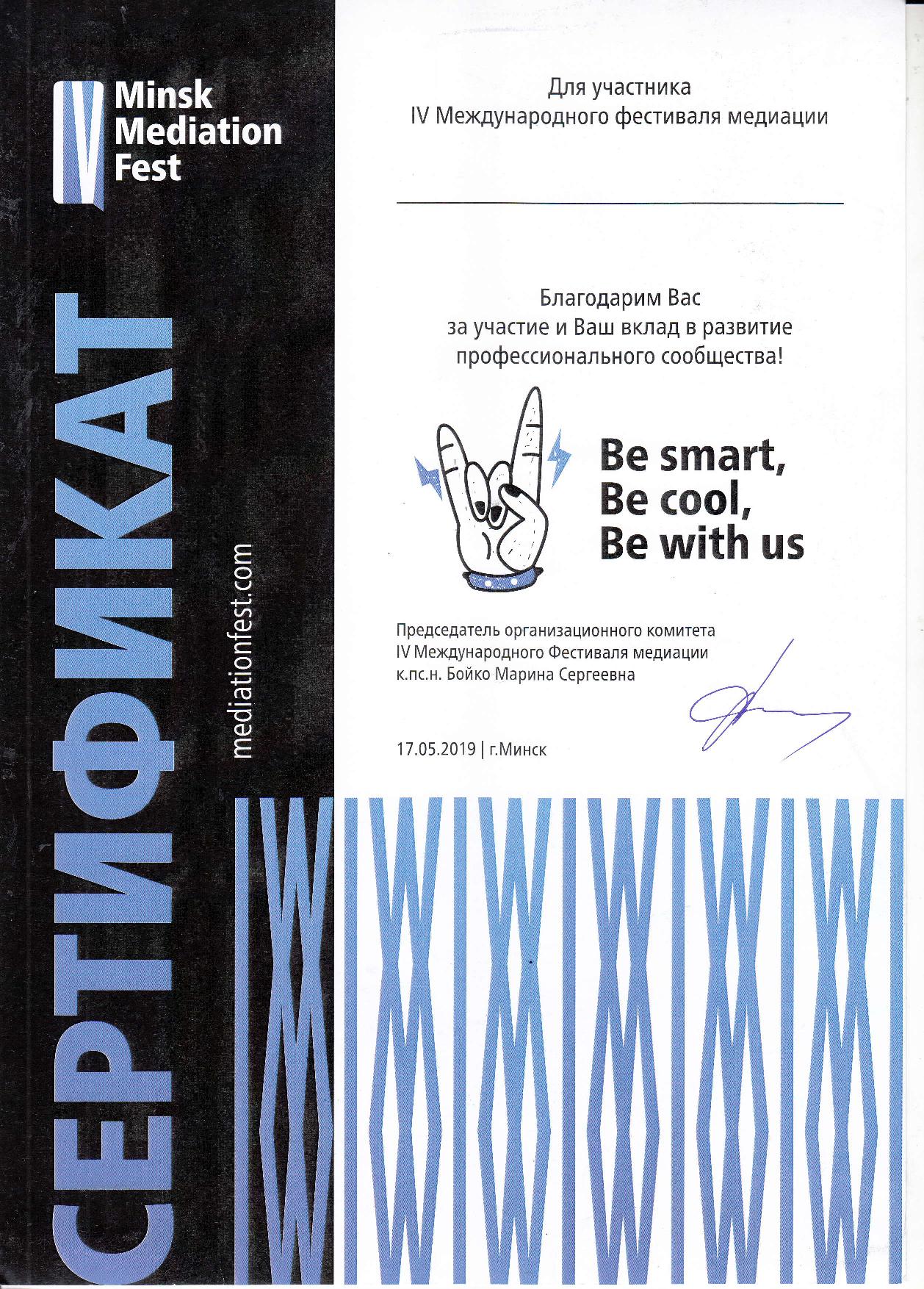 |
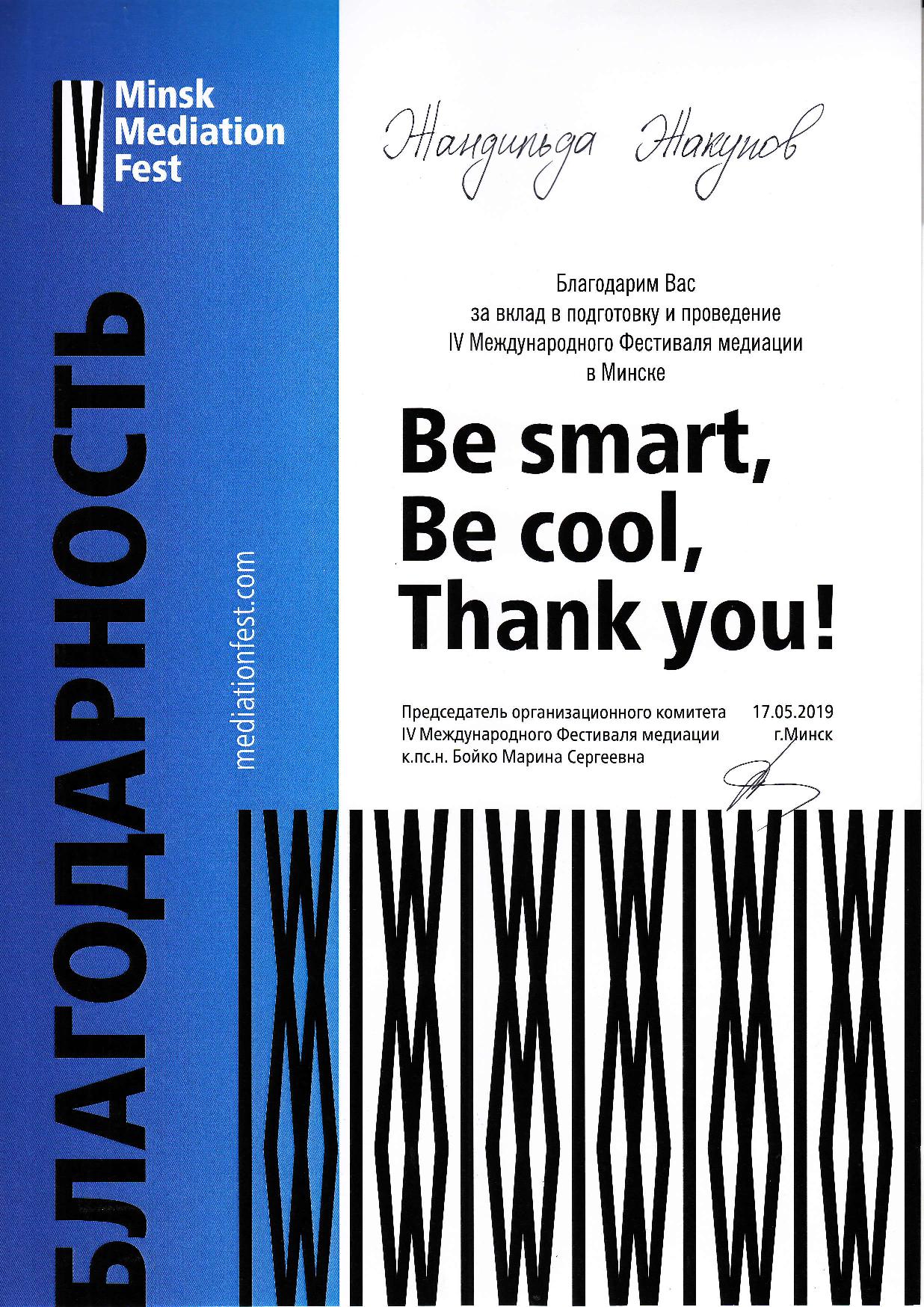 |
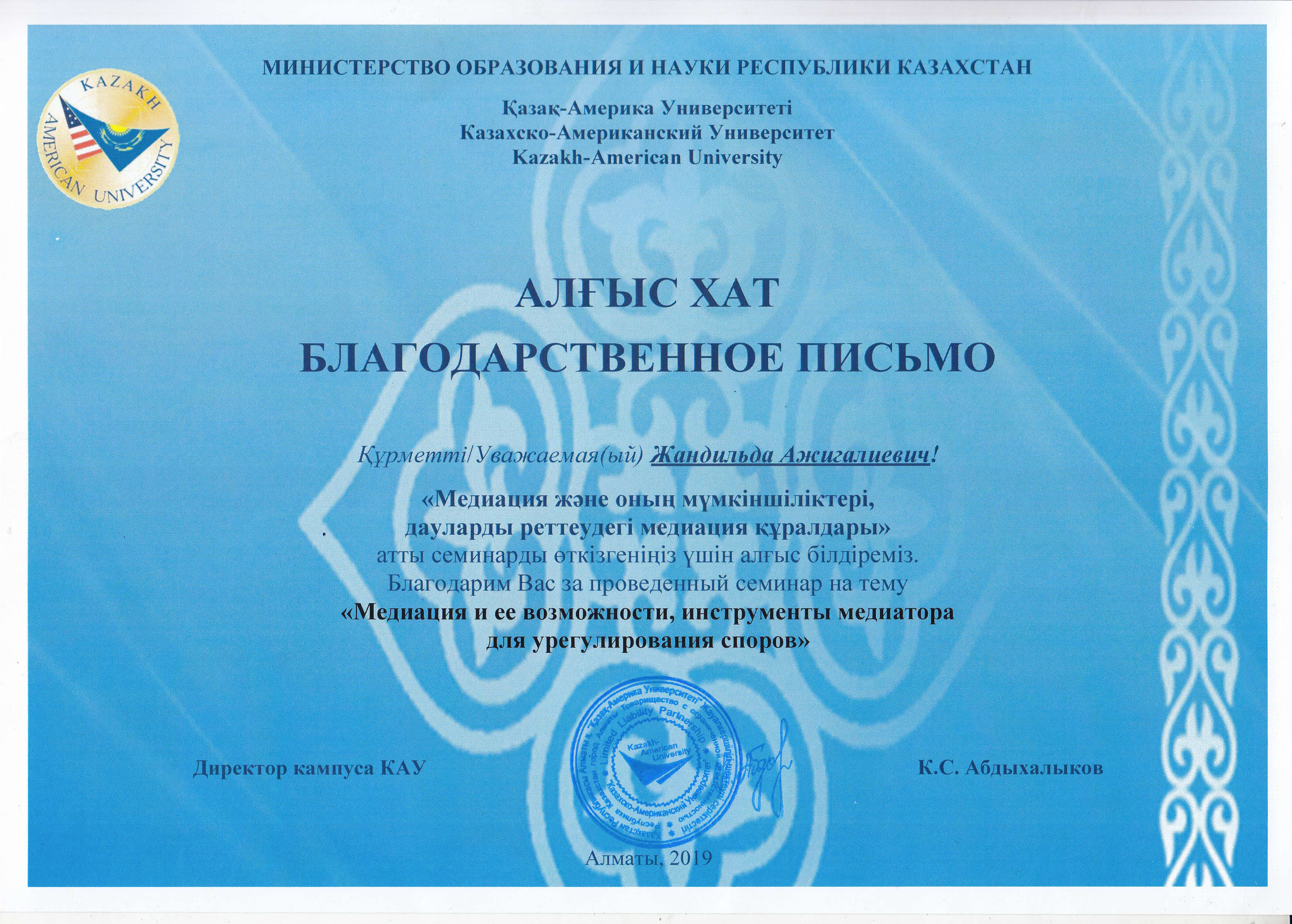 |
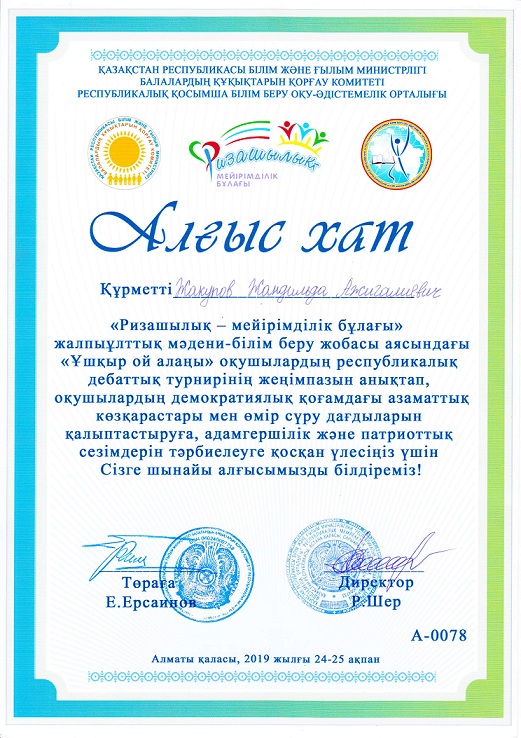 |
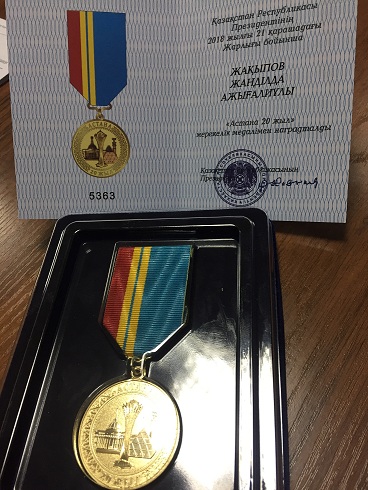 |
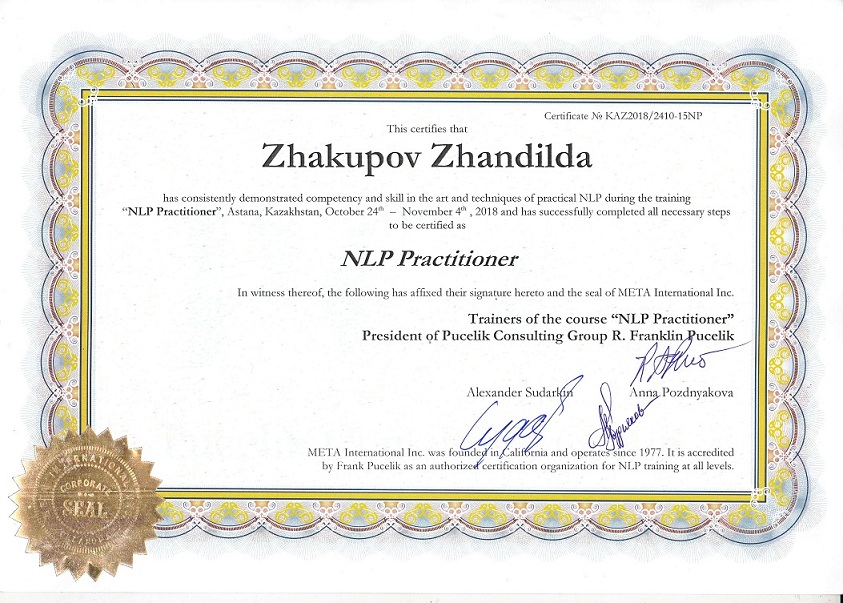 |
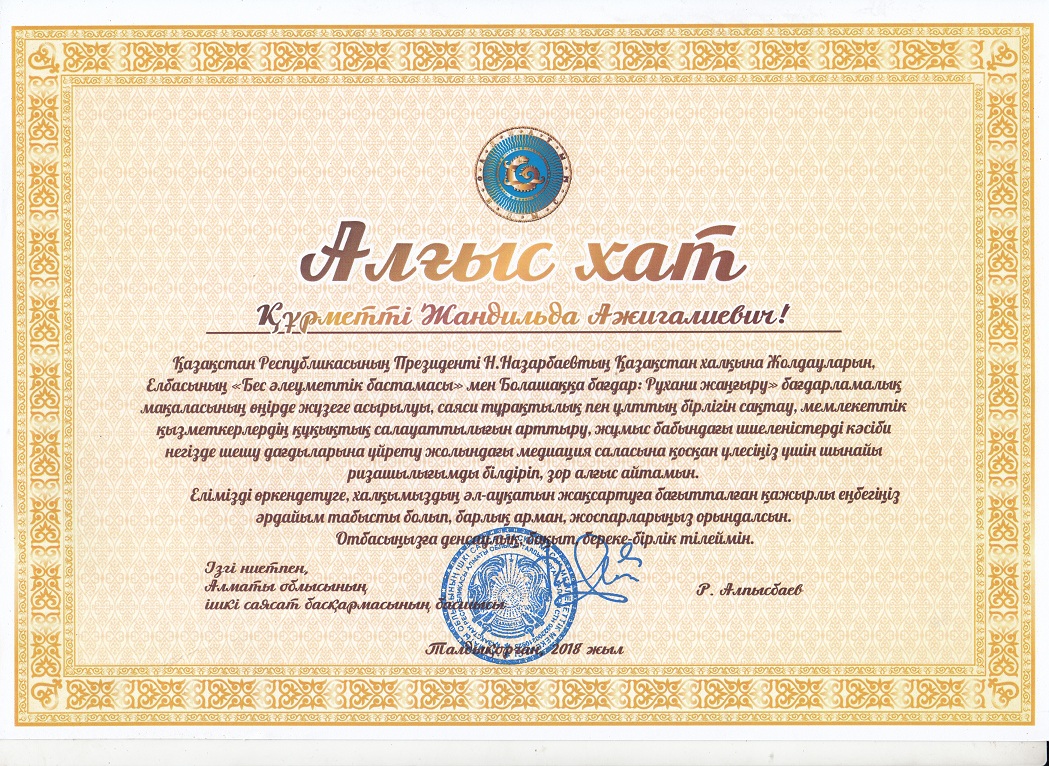 |
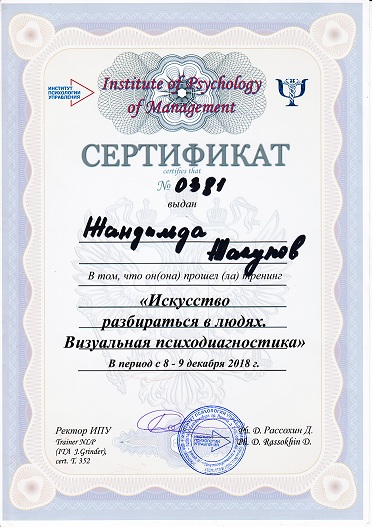 |
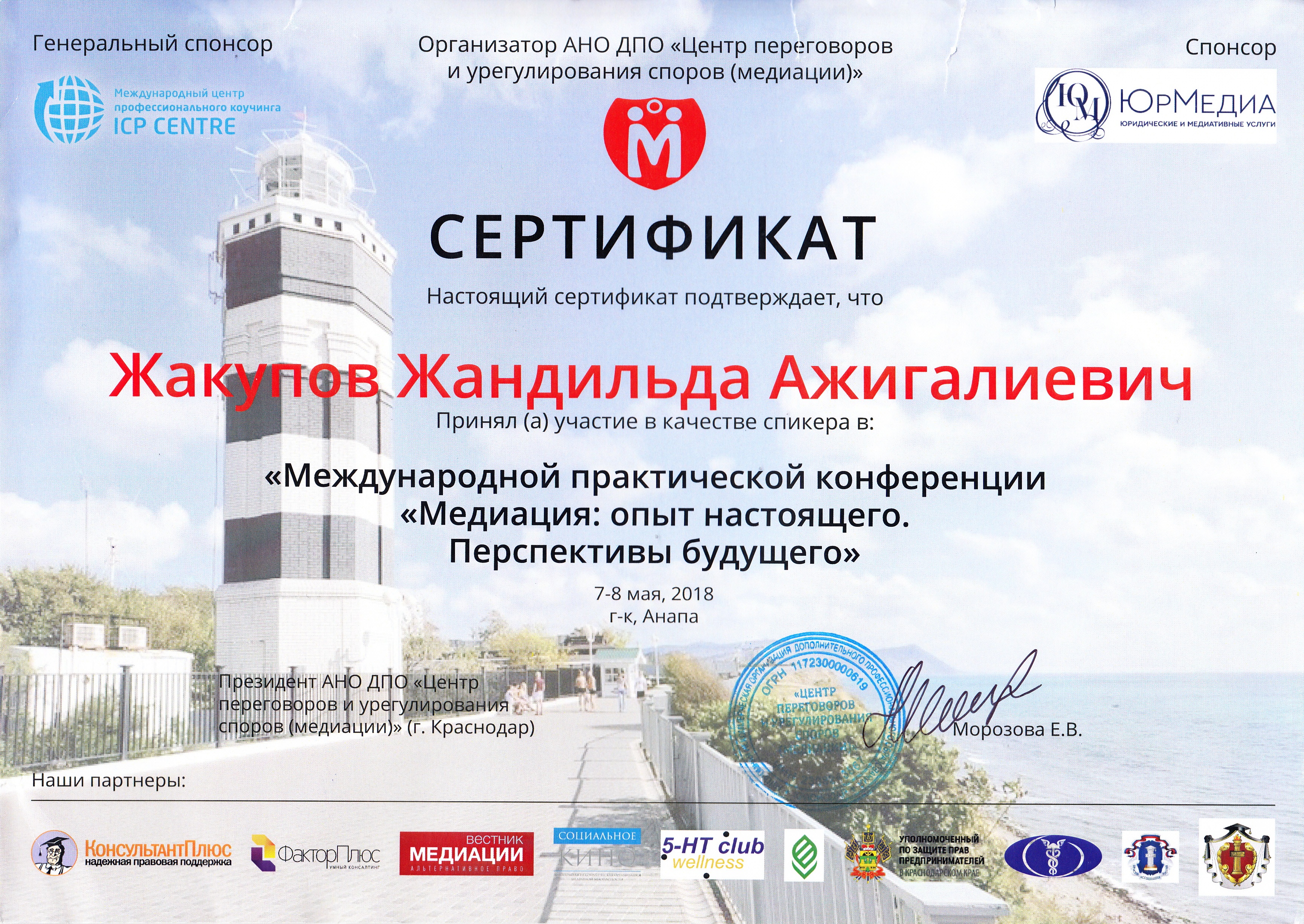 |
 |
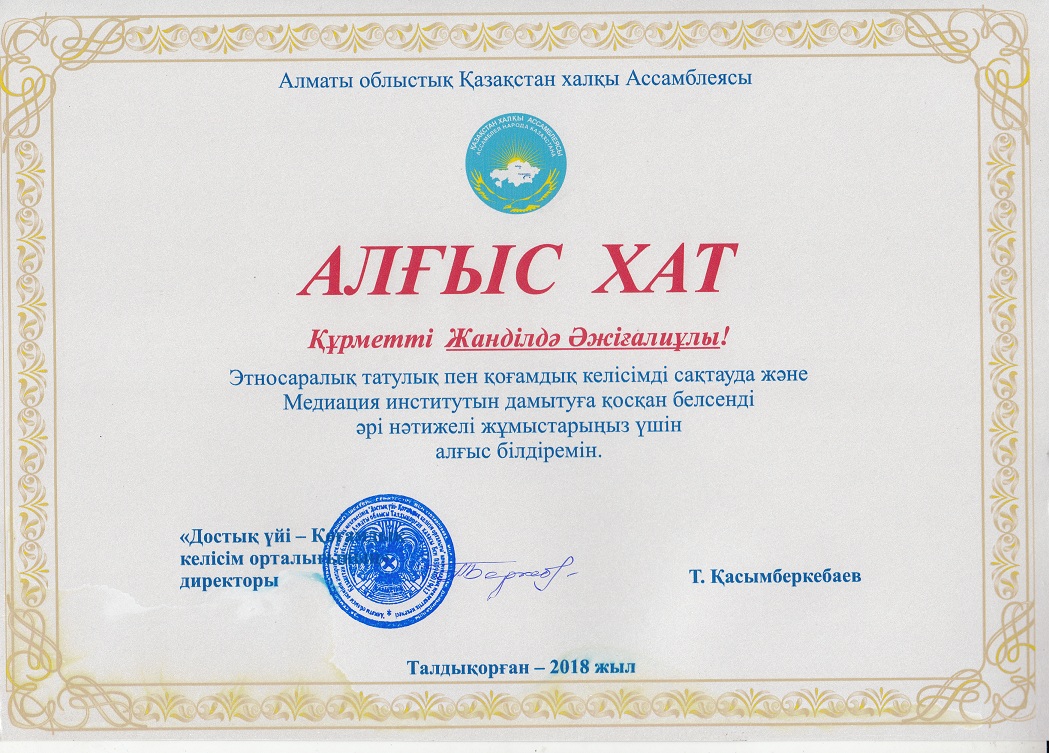 |
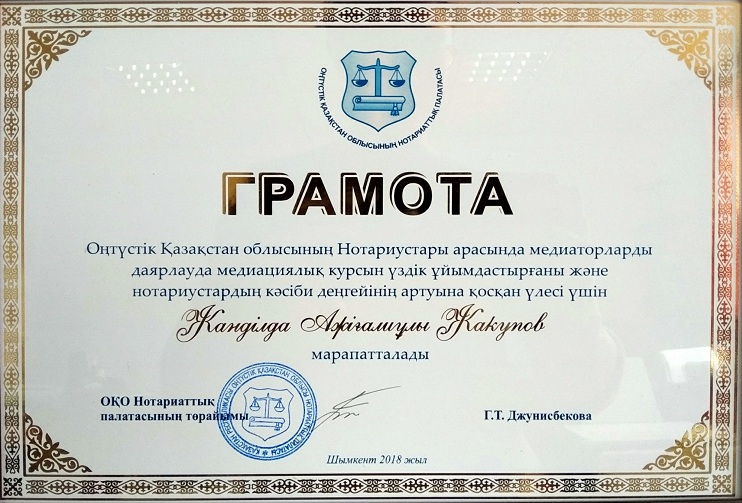 |
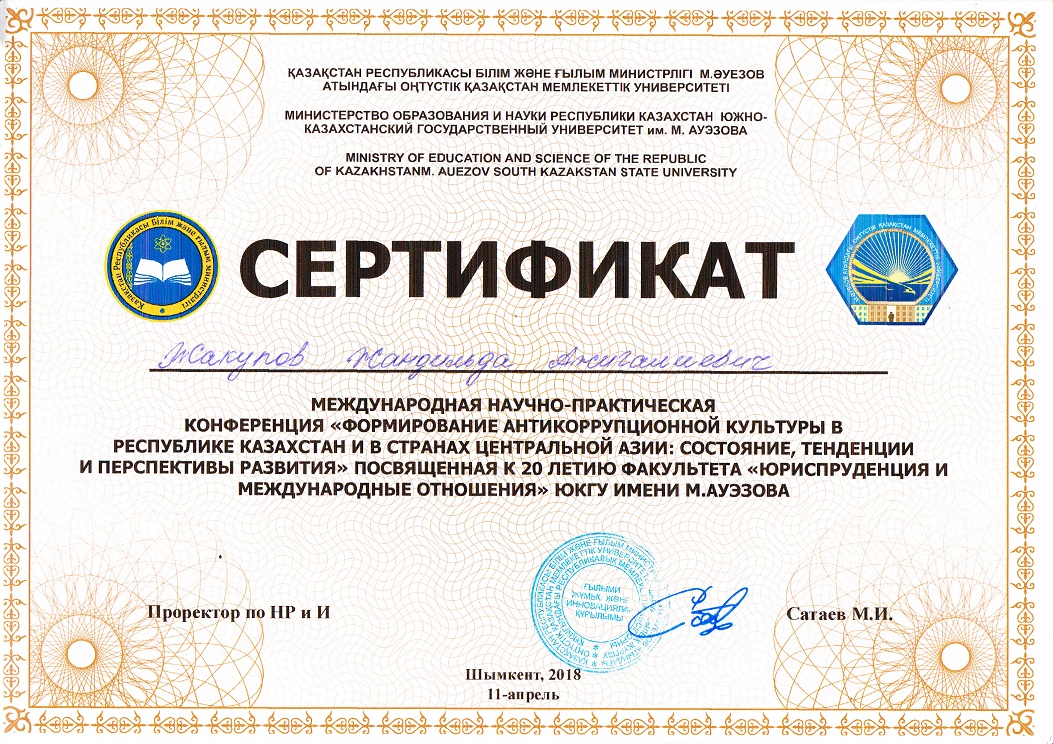 |
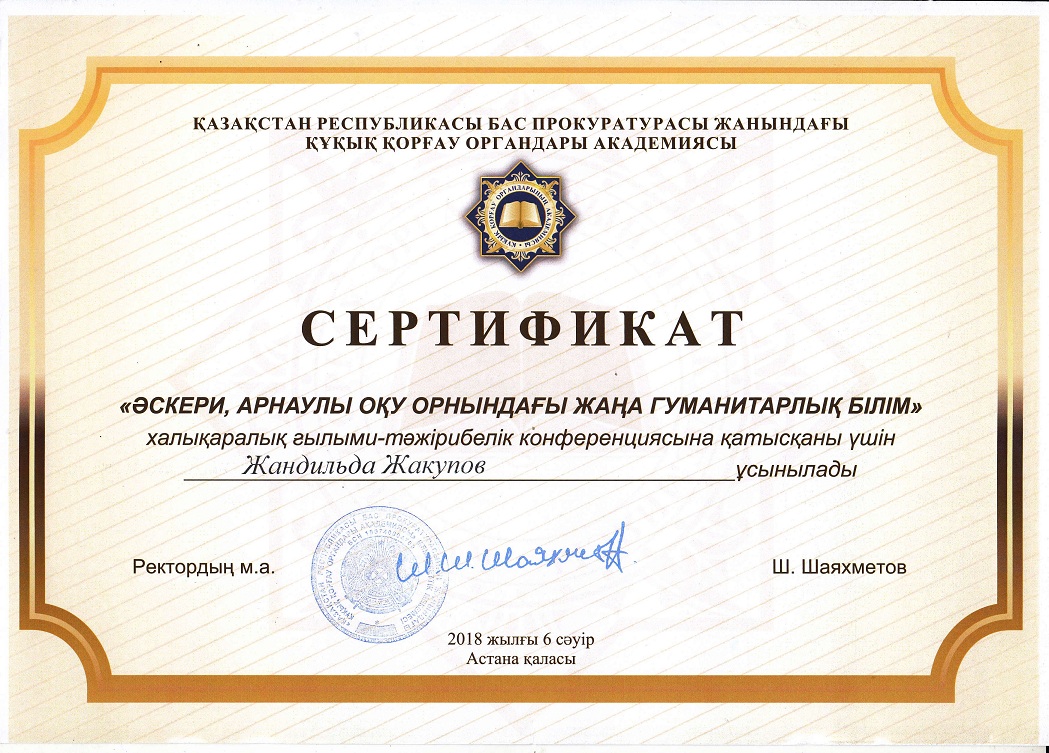 |
 |
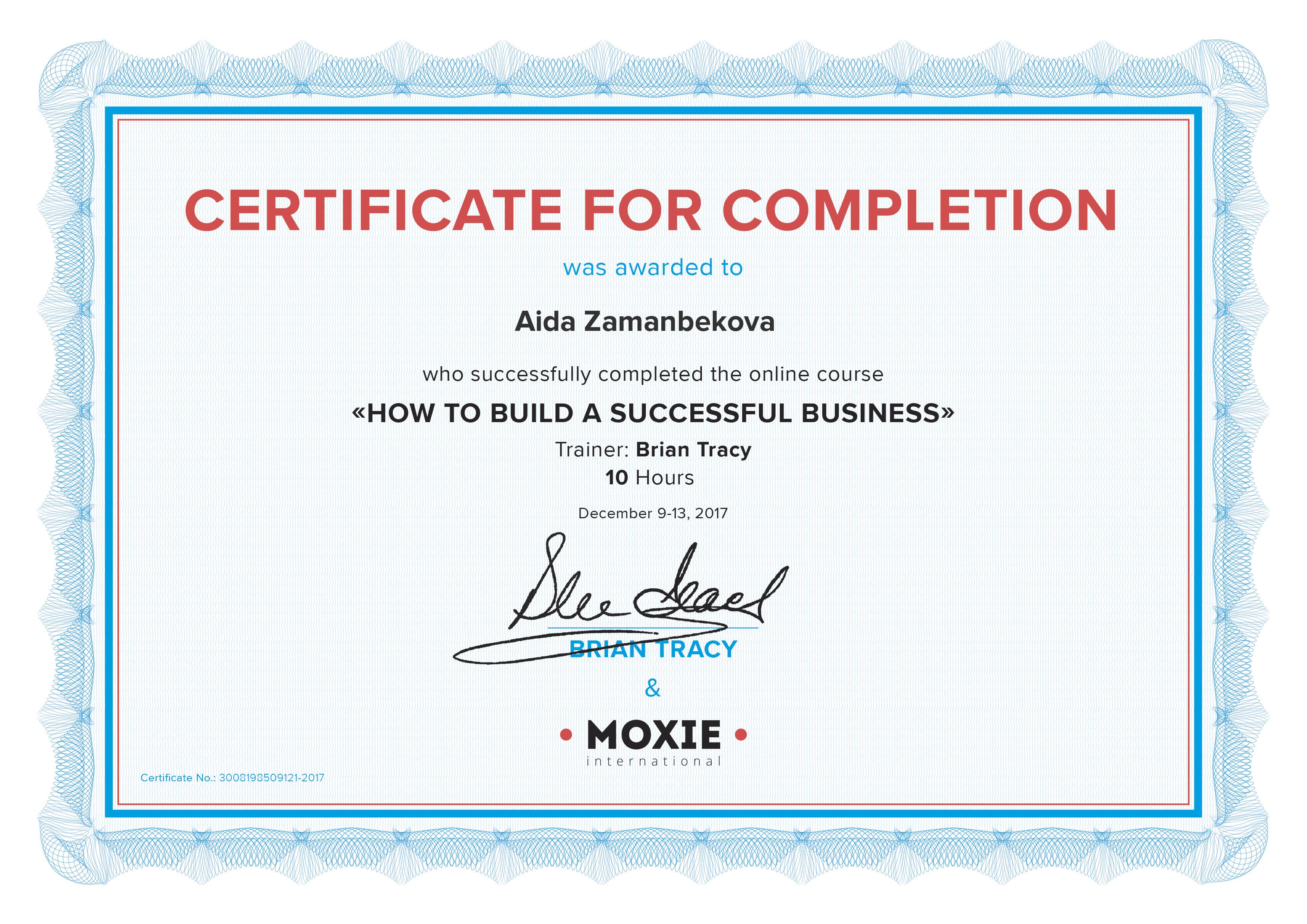 |
 |
 |
 |
 |
 |
 |
|
 |
 |
 |
 |
 |
 |
 |
 |
 |
 |
 |
 |
 |
 |
 |
 |
 |
 |
 |
 |
 |
 |
 |
 |
 |
 |
 |
 |
 |
 |
 |
 |
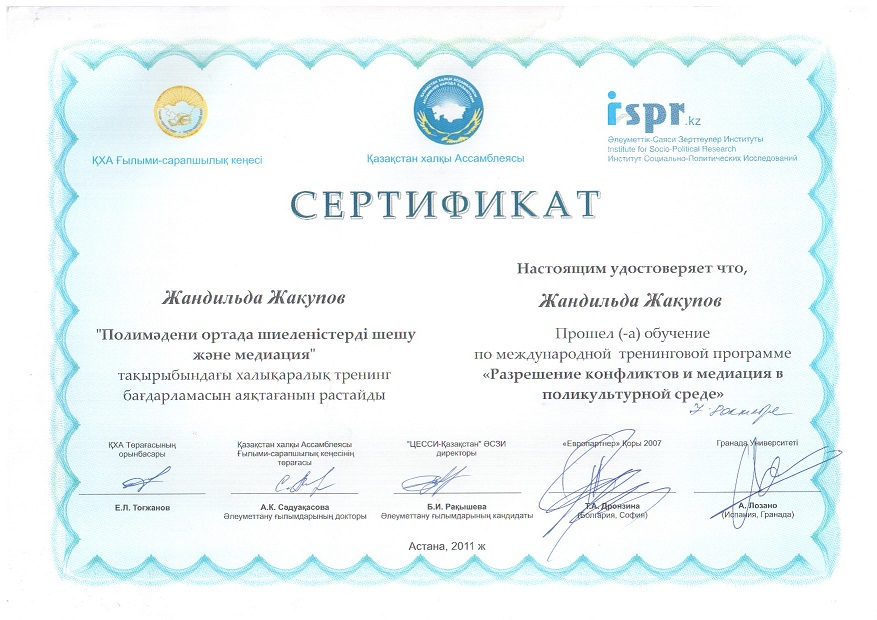 |
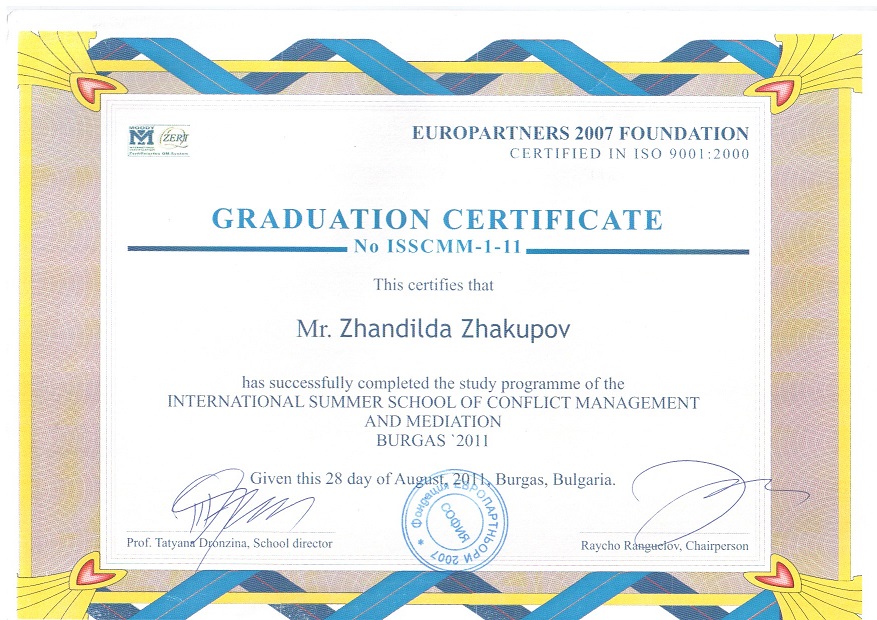 |
 |
 |
 |
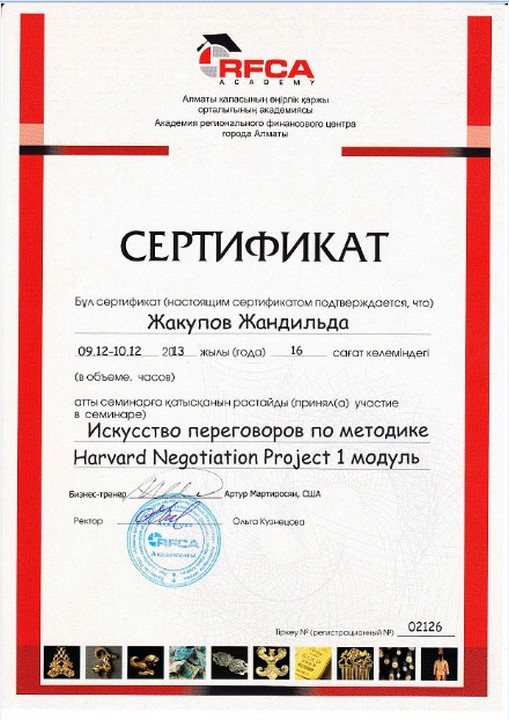 |
 |
 |
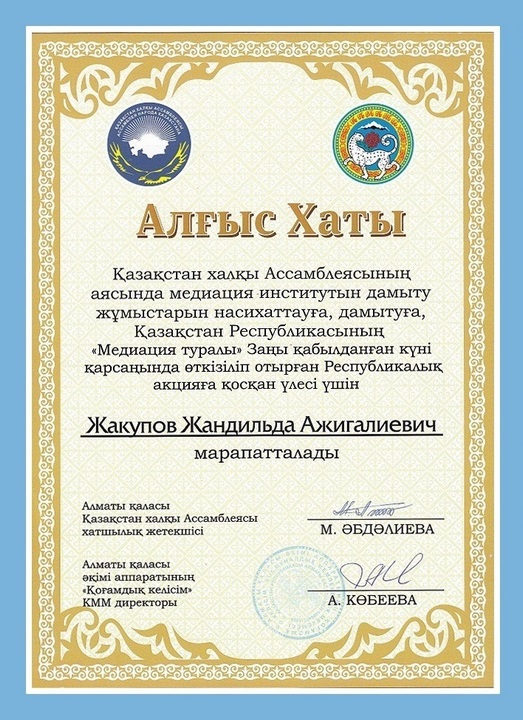 |
 |
 |
 |
 |
 |
 |
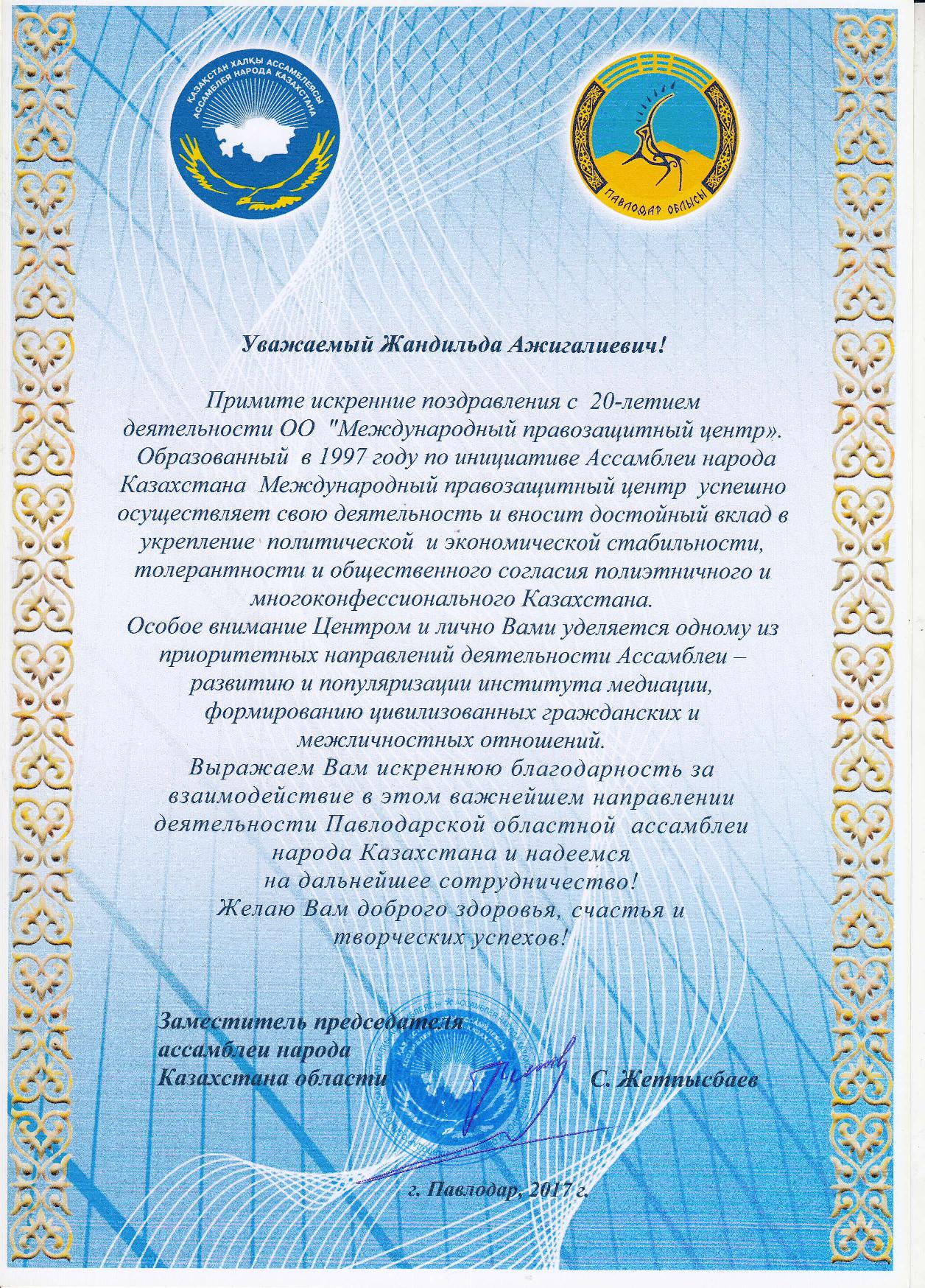 |
 |
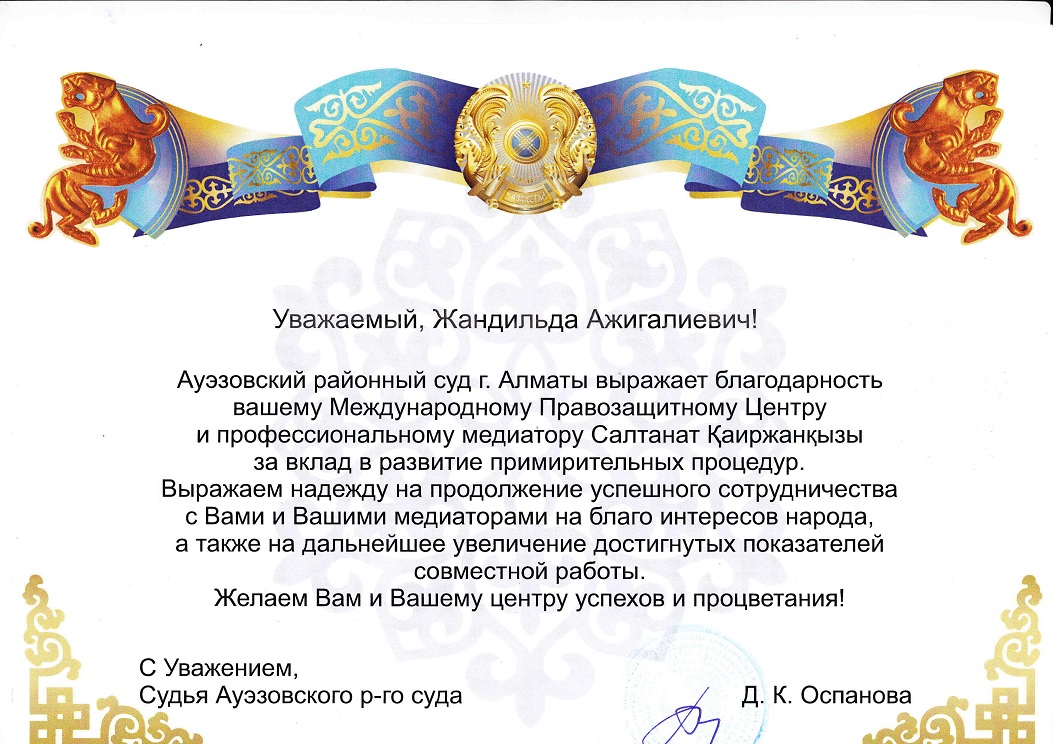 |
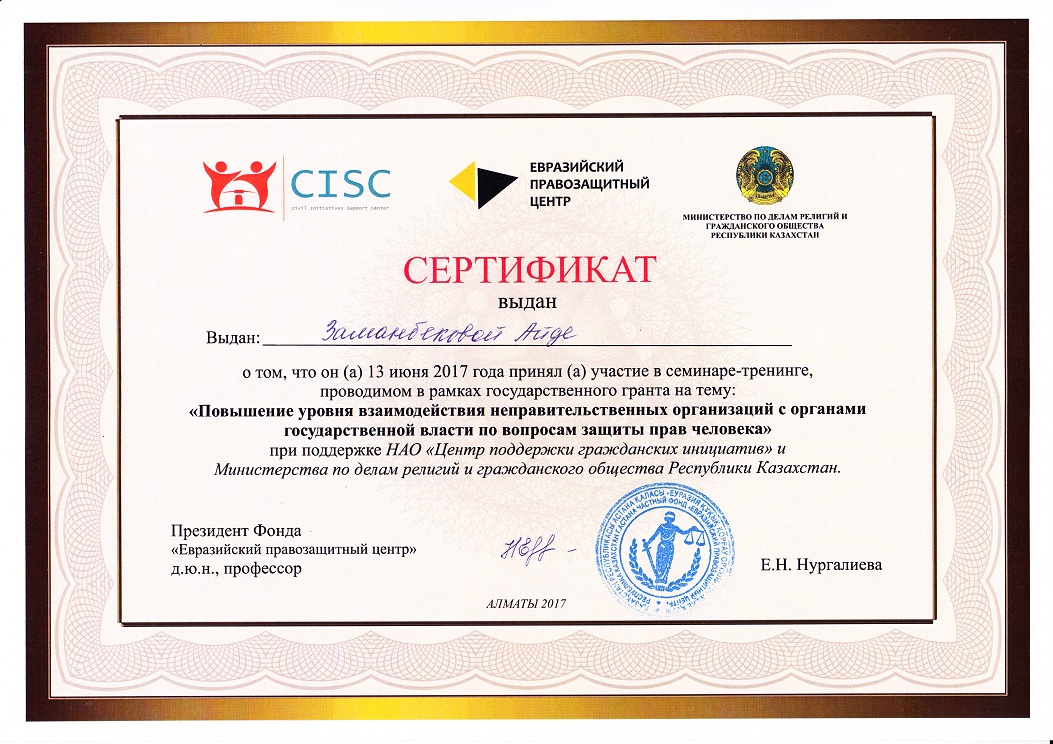 |
 |
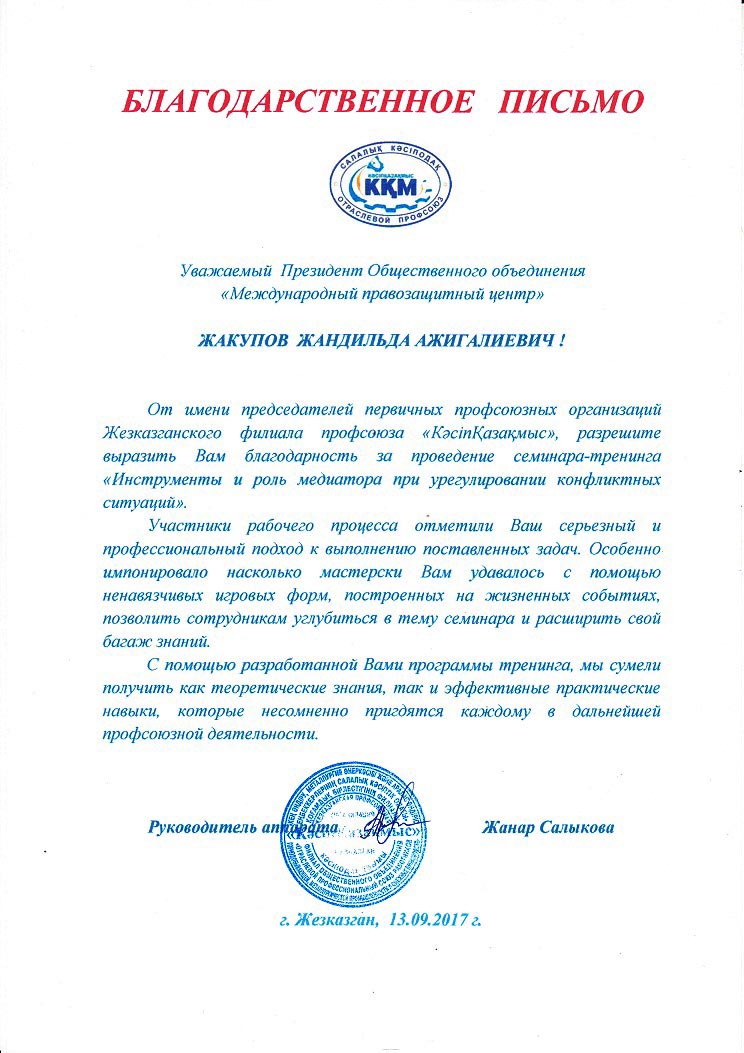 |
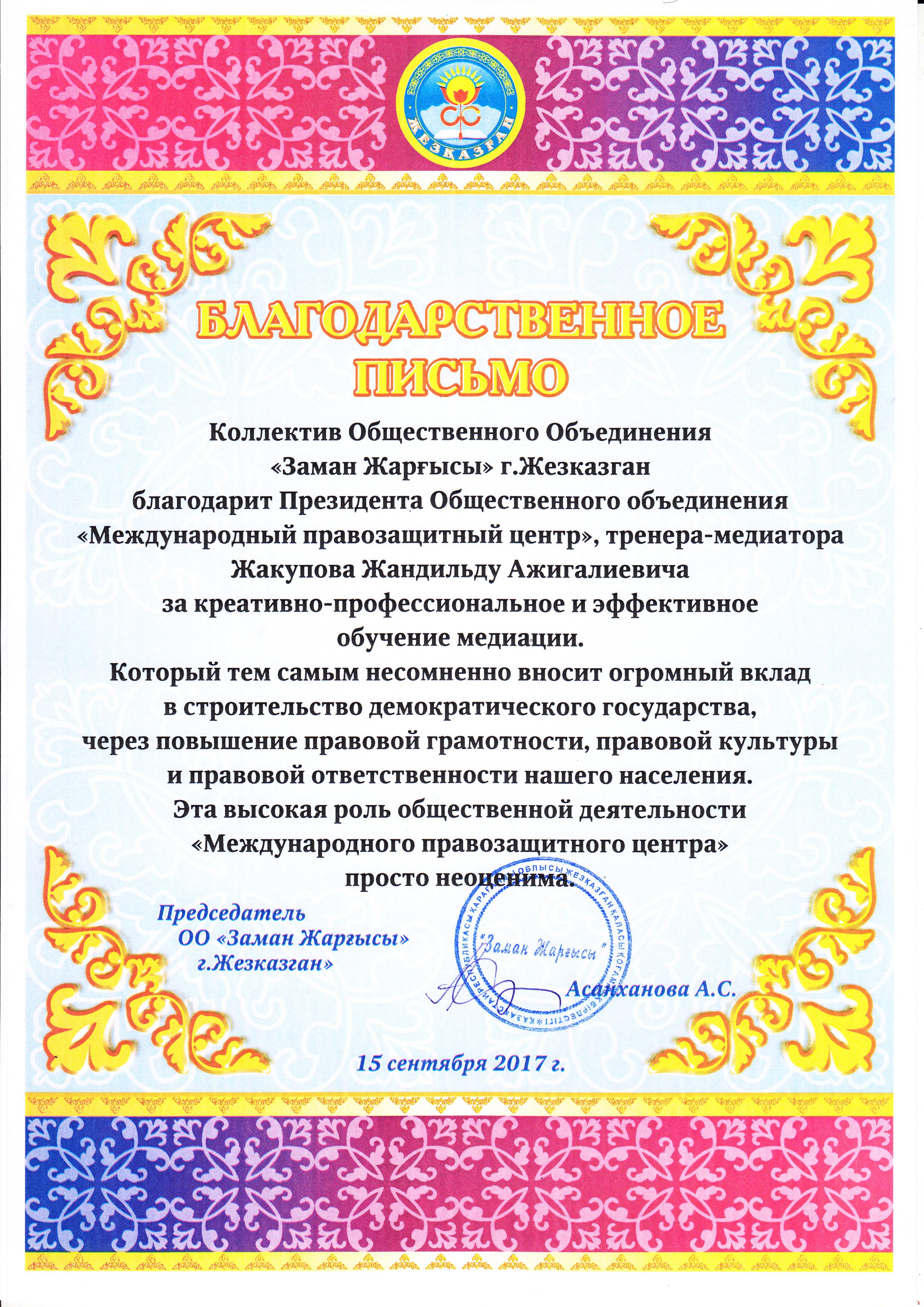 |
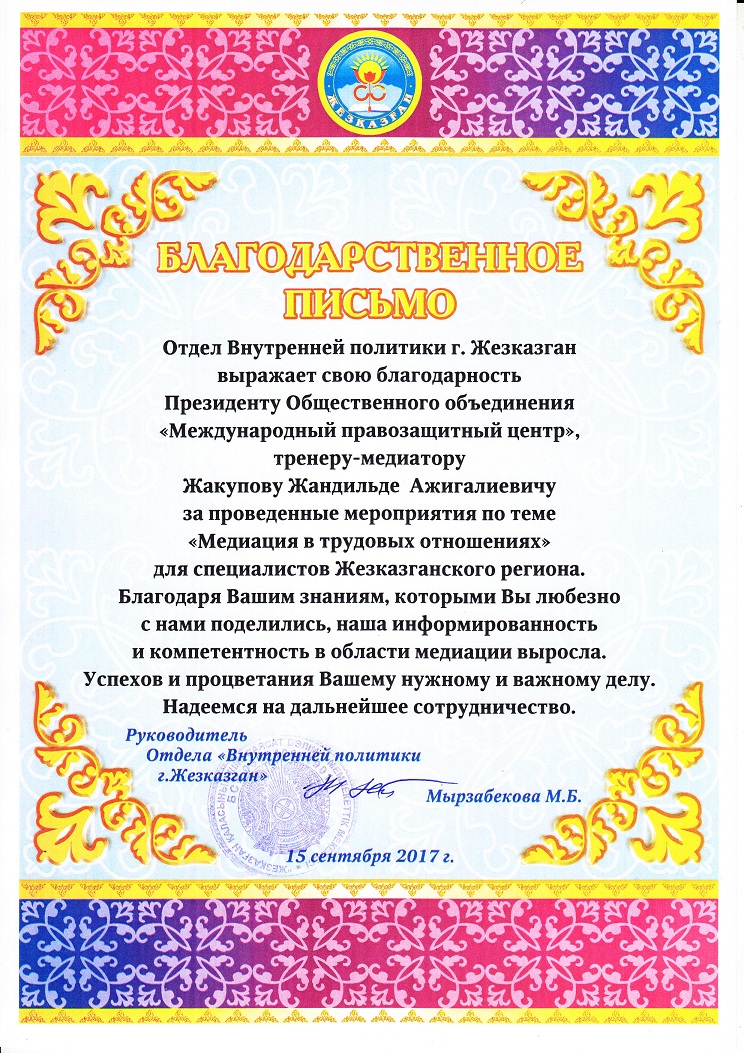 |
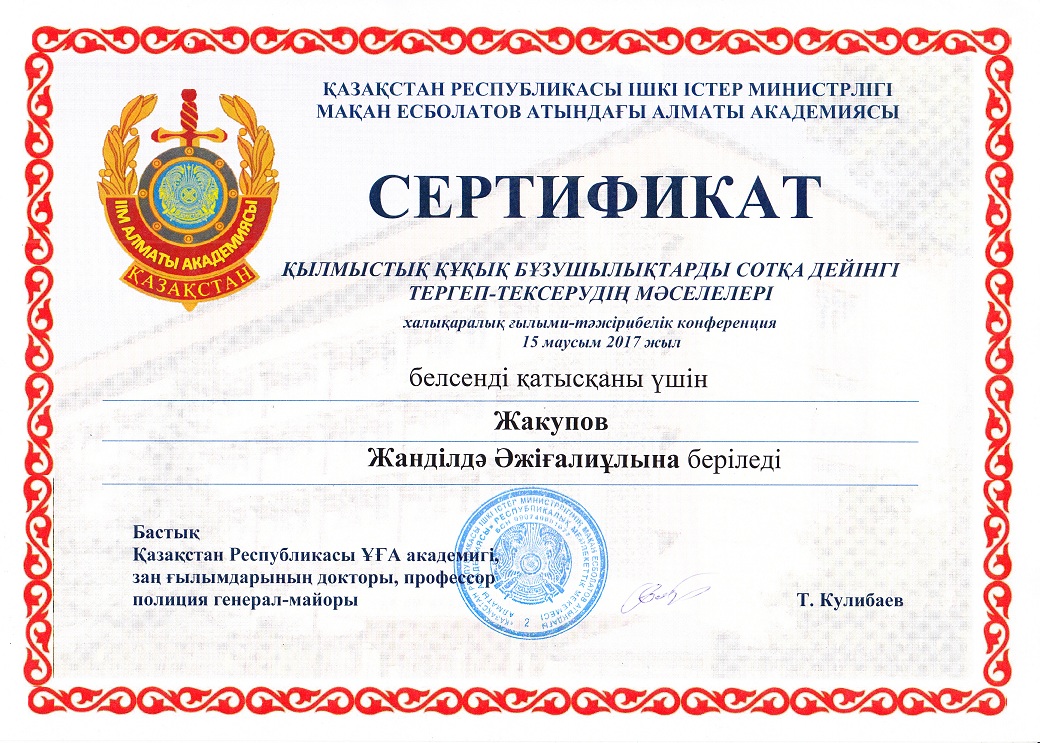 |
 |
 |
 |
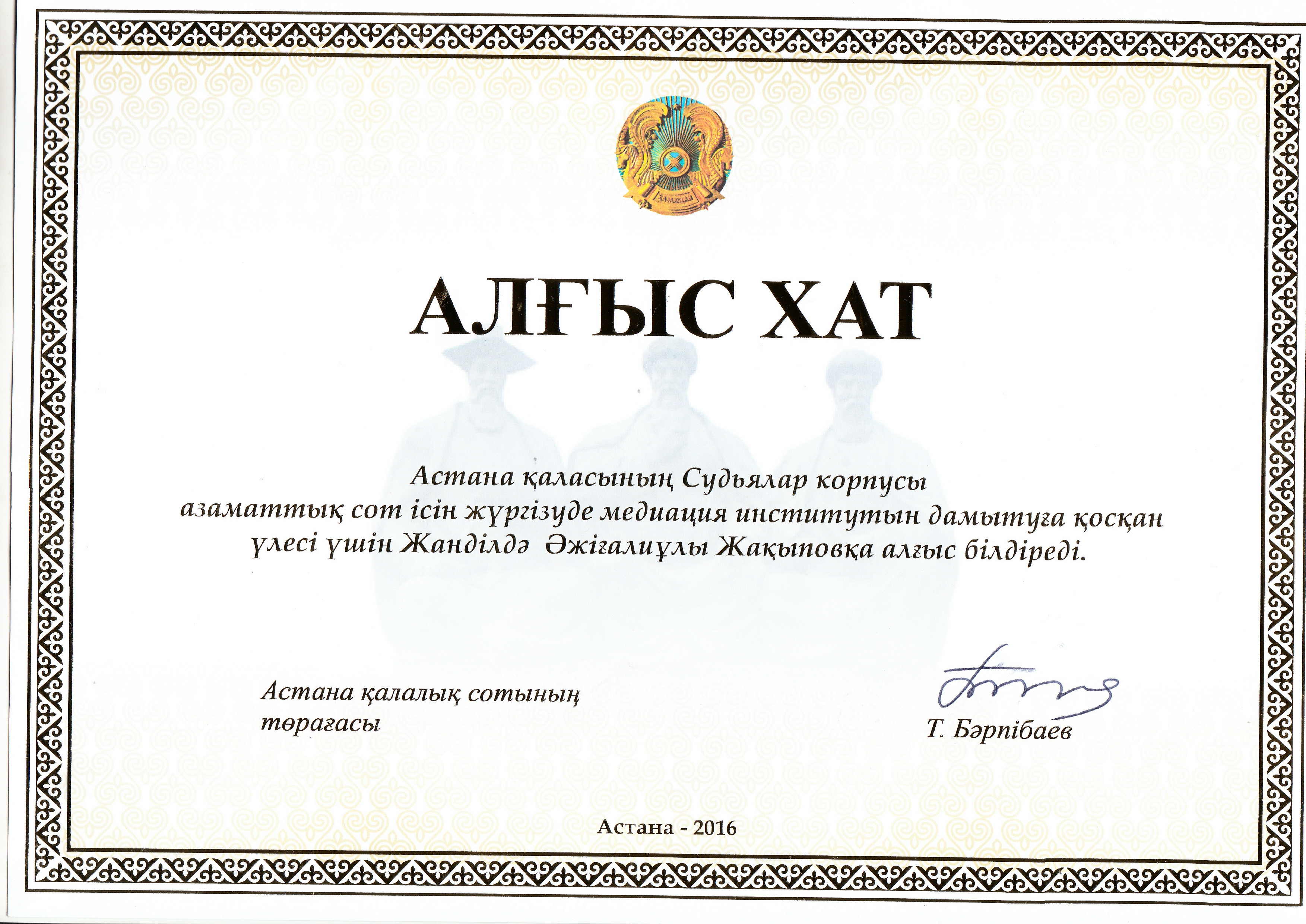 |
Our team
|
Zhakupov Zhandilda Azhigalievich
Президент Общественного объединения "Международный правозащитный центр"
|
Первый Президент Международного правозащитного центра
|
|
Координатор, юрист +7 777 215 74 36 (Whatsapp) |
Уальхан Асель Бекбулатовна
Координатор +7 708 970 51 95 (Whatsapp) |
|
Бухгалтер +7 701 887 51 43 |
Жекебаев Турсын Мухаметкаримович
Менеджер тел. +7 747 320 23 13 (Whatsapp) +7 777 398 86 27 +7 778 200 62 17 электр.почта: zhekebaev.kz@mail.ru |
|
IT-специалист +7 747 844 51 21 (Whatsapp) эл. почта: This email address is being protected from spambots. You need JavaScript enabled to view it. |
Юрист ВАКАНСИЯ |
Trainers training school
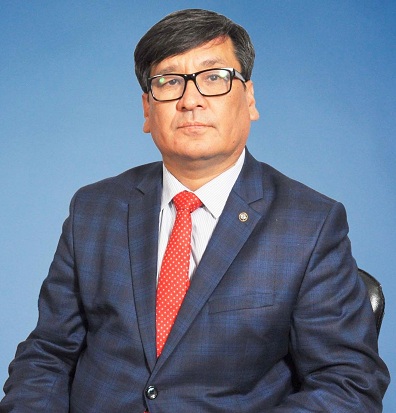 |
Жакупов Жандильда Ажигалиевич
Генеральный директор ОЮЛ «Ассоциация медиаторов Казахстана» Руководитель РОО «Международный правозащитный центр» (МПЦ); Председатель правления ОО «Реформа в уголовно-исправительной системе» Экс посредник Международного Центра по урегулированию споров при Экономическом Суде СНГ (Минск, Беларусь) Академик Международной Академии информатизации Тренер-медиатор, бизнес-тренер (на государственном и русском языках)
|
Schedule of seminars and trainings
To improve the skills and productivity of your employees,
we offer training courses, seminars,
and trainings for 2025 on the following topics:
|
The topic of seminars and trainings
|
Volume (in the academy hours) |
Cost |
|
Fundamentals of labor legislation of the Republic of Kazakhstan and mediation for members of the conciliation commission in resolving labor disputes
|
16 |
50 000 |
|
Practical issues of the application of labor legislation, personnel records management |
16 |
50 000 |
|
Internal Mediation Service
|
50 |
350 000 |
|
Specialized mediation course. Prevention and resolution of social and labor disputes in the company
|
50 |
350 000 |
|
Negotiation and mediation competence. A professional negotiator |
24 |
150 000 |
|
The basics of mediation for corporate lawyers
|
8 |
80 000 |
|
Profiling for mediators, HR and security services |
16 |
80 000 |
|
Leadership and team building |
16
|
50 000 |
|
Anti-corruption compliance |
8 |
50 000 |
|
Project management and risk management |
16 |
60 000 |
|
Office management in the company and nomenclature |
8 |
50 000 |
|
Business communications, etiquette and image |
8 |
50 000 |
|
Emotional intelligence and motivation |
8 |
40 000 |
|
Effective management skills |
16 |
40 000 |
|
Formation of corporate culture |
8 |
40 000 |
|
Conflict management in the organization |
16 |
60 000 |
|
Critical and systems thinking |
8 |
30 000 |
|
Strategy and goal setting in the company |
16 |
40 000 |
|
Public speaking, speech and presentation skills |
8 |
40 000 |
|
Fundamentals of HR Management for managers |
8 |
40 000 |
|
Mentoring |
8 |
40 000 |
|
Stress management |
8 |
30 000 |
|
Fundamentals of management and effective management |
16 |
50 000 |
|
Project management |
16 |
50 000 |
|
Innovation management |
16 |
60 000 |
|
Human resource management |
16 |
50 000 |
|
Fundamentals of risk management |
16 |
50 000 |
|
Problem solving and decision-making process |
16 |
40 000 |
|
Talent Management |
8 |
40 000 |
|
Mentoring and coaching in management |
16 |
60 000 |
|
Change Management |
16 |
50 000 |
|
The basics of lean manufacturing |
16 |
60 000 |
|
Time management |
8 |
50 000 |
|
Flexible Soft Skills to expand competence |
24 |
80 000 |
|
Strategic, operational and project management |
16 |
60 000 |
|
Managing credit, market and operational risks |
16 |
70 000 |
|
Reengineering and process optimization, transformation and efficiency improvement of the company |
16 |
70 000 |
|
Internal audit and financial analysis |
16 |
70 000 |
|
Investments, financial management and controlling |
16 |
80 000 |
|
Corporate governance, internal control, fraud management, business continuity, change management |
24 |
100 000 |
The Center's trainings and seminars are conducted in the state and Russian languages. The trainers are business coaches, conflict analysts, lawyers, mediation coaches, retired judges, etc., who have extensive practical experience working in government agencies, companies in Kazakhstan and abroad. Since 2011, they have conducted more than 600 trainings, lectures and seminars at national and foreign companies, government agencies, banking structures, universities, educational institutions, public organizations, Civil society forums in Kazakhstan, etc.
The training takes place in the format of theoretical and practical classes and is accompanied by all modern teaching techniques and techniques (testing, brainstorming, demonstration of audio and video materials, debriefing, work in small and large groups, etc.) The tuition fee also includes a handout and a certificate. For corporate seminars, there are individual discounts with the departure of the coach to the enterprise in any city.
Detailed information about the activities and training activities offered can be obtained from the manager Zhekebaev Tursyn (tel.87473202313 (PBX ap), 87773988627, 87782006217), electr.Mail: This email address is being protected from spambots. You need JavaScript enabled to view it. , website mpc-info.kz
Training
Since June 2012, the Center for Advanced Studies has been established at the NGO “International Human Rights Center”, which conducts training to improve the skills of managers, employees of organizations and other interested persons.
Lecturers of the Center are practicing lawyers, conflictologists, business coaches who have extensive legal experience (over 25 years) in law enforcement, judicial bodies, prosecution bodies and other organizations (lawyers, retired judges, prosecutors, HR, etc.). The teachers of the Center are also practicing mediators who regularly conduct mediation procedures.
Lecturers of the Center conduct training activities in Kazakh and Russian languages, trainings are held in national and foreign companies, banking and financial structures, higher and secondary educational institutions, government, judicial, law enforcement agencies, non-governmental organizations, etc.
Trainings are held in an open and closed corporate format, the number of participants of the training is from 5 to 15 people. The training program includes practical lectures, handouts, certificates, coffee breaks, lunches. Separate training programs are additionally expanded with special professional certificates, educational films, disks, and may contain additional conditions for the provision of documents before the start of training (certificates, diplomas, etc.).
The duration of trainings is individual and is set in academic hours. The cost of participation in the training is indicated in the training program. There is a system of discounts for non-governmental organizations.
Training topics:
- General course of mediation. Profession - mediator. Internal Mediation Service
- Media competencies for conflict management
- Mediation for corporate lawyers
- The art of negotiation. Effective communication skills, business ethics
- Basics of labor legislation of the Republic of Kazakhstan and the basis of negotiation and mediation for members of the conciliation commission
- Social development of the company, recruitment and personnel management
- Economic security
-Time management
-Leadership and team building
-Oratory
Программы и курсы
Отзывы участников семинаров МПЦ

























Legal services
Free legal advice for socially vulnerable segments of the population, legal services to individuals and legal entities, representation in court, protection of rights.




